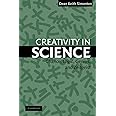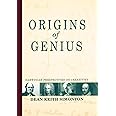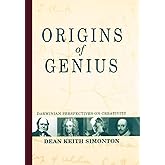
Amazon Prime Free Trial
FREE Delivery is available to Prime members. To join, select "Try Amazon Prime and start saving today with FREE Delivery" below the Add to Cart button and confirm your Prime free trial.
Amazon Prime members enjoy:- Cardmembers earn 5% Back at Amazon.com with a Prime Credit Card.
- Unlimited FREE Prime delivery
- Streaming of thousands of movies and TV shows with limited ads on Prime Video.
- A Kindle book to borrow for free each month - with no due dates
- Listen to over 2 million songs and hundreds of playlists
Important: Your credit card will NOT be charged when you start your free trial or if you cancel during the trial period. If you're happy with Amazon Prime, do nothing. At the end of the free trial, your membership will automatically upgrade to a monthly membership.

Download the free Kindle app and start reading Kindle books instantly on your smartphone, tablet, or computer - no Kindle device required.
Read instantly on your browser with Kindle for Web.
Using your mobile phone camera - scan the code below and download the Kindle app.

Follow the author
OK
Creativity in Science: Chance, Logic, Genius, and Zeitgeist
Purchase options and add-ons
- ISBN-10052154369X
- ISBN-13978-0521543699
- PublisherCambridge University Press
- Publication dateMay 3, 2004
- LanguageEnglish
- Dimensions5.99 x 0.59 x 9.01 inches
- Print length234 pages
Discover the latest buzz-worthy books, from mysteries and romance to humor and nonfiction. Explore more
Frequently bought together

Customers who viewed this item also viewed
Editorial Reviews
Review
-R.M. Davis, Albion College, CHOICE
"Simonton is a very clear writer, and the empirical support he marshals is impressive. Although the book begins with an advisement of mathematical formulae to be used, Simonton does not bog the reader down with equations. Instead, he affirms the superiority of the change approach as an overarching explanation to scientific creativity with a thorough account of how the causal predictions based on the logic, genius, and zeitgeist perspectives ultimately contradict available data."
-Christopher H. Ramey, Department of Psychology, Florida Southern College, Philosophical Psychology
Book Description
About the Author
Product details
- Publisher : Cambridge University Press (May 3, 2004)
- Language : English
- Paperback : 234 pages
- ISBN-10 : 052154369X
- ISBN-13 : 978-0521543699
- Item Weight : 11.5 ounces
- Dimensions : 5.99 x 0.59 x 9.01 inches
- Best Sellers Rank: #1,074,874 in Books (See Top 100 in Books)
- #795 in Popular Psychology Creativity & Genius
- #1,691 in Medical Cognitive Psychology
- #2,656 in Cognitive Psychology (Books)
- Customer Reviews:
About the author

Discover more of the author’s books, see similar authors, read book recommendations and more.
Customer reviews
Customer Reviews, including Product Star Ratings help customers to learn more about the product and decide whether it is the right product for them.
To calculate the overall star rating and percentage breakdown by star, we don’t use a simple average. Instead, our system considers things like how recent a review is and if the reviewer bought the item on Amazon. It also analyzed reviews to verify trustworthiness.
Learn more how customers reviews work on AmazonTop reviews from the United States
There was a problem filtering reviews right now. Please try again later.
- Reviewed in the United States on January 1, 2009Simonton is a lucid thinker and lucid writer, so I found this book a delight to read, though it's a challenging delight because it reads much like a PhD thesis, with careful reasoning, abundant use of empirical data, and more quantitative analysis than one might have expected.
But that rigor is worth dealing with because many of Simonton's conclusions turn out to be counterintuitive. What is his central conclusion? In a sophisticated way, Simonton makes a strong case that chance (luck) is the dominant factor in scientific creativity and success, while also recognizing the supporting roles of genius (inborn ability), zeitgeist (culture), and logic (basic knowledge of one's scientific domain and its rules of inference).
Yet Simonton also notes that "chance" isn't strictly random and out of our control, since the odds of coming up with important results can be increased by factors such as hard work (eg, increasing number of papers published), exposure to diverse and numerous influences, and fostering an iconoclastic attitude (willingness to think "outside the box," in opposition to prevailing paradigms).
To place this book in a more "popular" context, please see my December 30, 2008 review of Outliers: The Story of Success by Malcom Gladwell.
The bottom line is that I highly recommend this book to anyone interested in creativity and success in science, both at individual and group levels. The book requires sustained concentration, but the effort is well worth it. This book itself exemplifies creative and successful scientific work!
- Reviewed in the United States on August 25, 2024NA
- Reviewed in the United States on October 20, 2014perfect in every way
- Reviewed in the United States on February 28, 2023This is a great research piece on creativity within the research fields of science. It leaves me knowing not to give up on trying to do great works in science.
Top reviews from other countries
 DanielJReviewed in the United Kingdom on February 22, 2013
DanielJReviewed in the United Kingdom on February 22, 20135.0 out of 5 stars Inspirational
This book is enjoyable and inspirational. If you in science/ academia and need a book to boost your motivation... buy this!
-
 喧Reviewed in Japan on March 5, 2011
喧Reviewed in Japan on March 5, 20113.0 out of 5 stars 科学的大発見の要因に関する既存見解をことごとく粉砕!
創造性の心理学研究の泰斗サイモントン博士の筆になる本書は、科学的創造性をめぐる博士の考察の集大成。科学史上の大発見の心理学的、あるいは社会学的メカニズムに関する既存の諸見解を徹底的に粉砕してくれます。
大発見は、天与の才のおかげではないし、時代が作り出したわけでもない、と。サイモントン博士が最終的にたどり着いた見解は「偶然Chance」。
科学的大発見は、パーソナリティから時代状況にいたるまでの種種雑多な要因がたまたまうまく結合した結果にすぎない、と。
個々の要因単体ではダメで、要因間の組み合わせがたまたま(=偶然)成立したときにのみ発見はなされるという、この「Chance Theory」、正直なところ、分野を問わず「多要因仮説」一般にありがちな、あまり面白くない結論ではありますが、間違った結論ではないことも確かでしょう。創造性の議論にありがちだった非常に主観的で雑駁な議論は一切なしで、統計を駆使して厳密に諸仮説を検証していく本書のストイックな姿勢は、創造性研究が成熟した学術的研究分野になってきている証拠だとは感じます。







